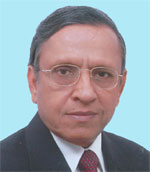 This last week of April is observed by the World Health Organization and others partner organizations as World Immunization Week. The marking of this week is aimed at raising awareness regarding the benefits of immunization, way that immunization saves lives, encouraging people everywhere to vaccinate themselves and their children against life threatening deadly diseases. Every year immunization saves an estimated 2 to 3 million people from getting infected and losing their life by diphtheria, tetanus, pertussis (whooping cough), and measles. According to WHO, during 2013, about 84% (112 million) of infants worldwide received 3 doses of diphtheria-tetanus-pertussis (DTP3) vaccine, protecting them against infectious diseases that can cause serious illness and disability or be fatal. WHO also says, that by 2013, 129 countries had reached at least 90% coverage of DTP3 vaccine. This last week of April is observed by the World Health Organization and others partner organizations as World Immunization Week. The marking of this week is aimed at raising awareness regarding the benefits of immunization, way that immunization saves lives, encouraging people everywhere to vaccinate themselves and their children against life threatening deadly diseases. Every year immunization saves an estimated 2 to 3 million people from getting infected and losing their life by diphtheria, tetanus, pertussis (whooping cough), and measles. According to WHO, during 2013, about 84% (112 million) of infants worldwide received 3 doses of diphtheria-tetanus-pertussis (DTP3) vaccine, protecting them against infectious diseases that can cause serious illness and disability or be fatal. WHO also says, that by 2013, 129 countries had reached at least 90% coverage of DTP3 vaccine.
And yet, in 2013, an estimated 21.8 million infants did not get the routine dose of vaccines. Almost half of these infants live in 3 countries: India, Nigeria and Pakistan. It is important that we enhance our systems, give priority to strengthening routine annual vaccination and more so in countries which have the maximum no. of unvaccinated children, like India. It is essential that specific efforts are directed at reaching out to infants in the remotest of the corners of the country, especially in difficult to access areas, in urban settings which also house the deprived and in the strife torn areas. Limited resources, competing health priorities, poor management of health systems and inadequate monitoring and supervision give rise to many challenges for developing world.
In India, the Government objective is to accelerate the process of immunization by covering 5% and more children every year, (average percent increase from 2009-2013 has been only 1%). As auxiliary to the Government, the Indian Red Cross Society stands by with its support. The IRCS has in the past worked on many vaccination programmes like measles catch up and polio.
With sustainable access to vaccines (especially newer ones), at affordable prices, technology transfer to facilitate local manufacture of vaccines as a means of ensuring vaccine security, improved data quality including through the use of new technologies like electronic registries, risk communication and management to address misinformation on immunization and its impact on vaccination coverage and evidence reviews and economic analysis for informed decision-making based on local priorities and needs, the day is not far when all infants will be properly vaccinated.
I call upon all volunteers and staff to disseminate messages for immunization and help communities’ access vaccines, and become more aware and prompt regarding their usage and benefits.
Dr S P Agarwal
Secretary General,
Indian Red Cross Society
|